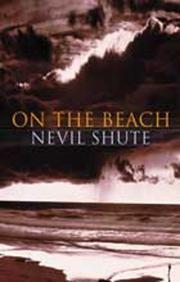What do you think?
Rate this book


296 pages, Paperback
First published July 1, 1957


”In the last of meeting places
We grope together
And avoid speech
Gathered on this beach of the tumid river…
This is the way the world ends
This is the way the world ends
This is the way the world ends
Not with a bang but with a whimper.
T. S. Eliot




 come to my blog!
come to my blog!“It's not the end of the world at all," he said. "It's only the end for us. The world will go on just the same, only we shan't be in it. I dare say it will get along all right without us.”



